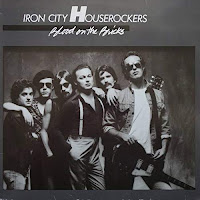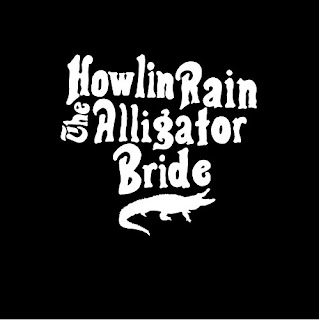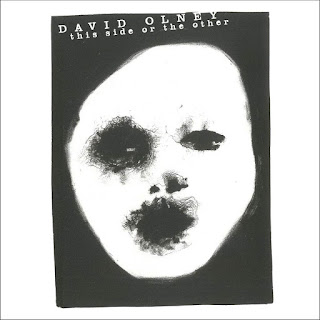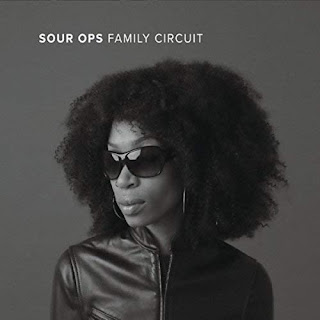Critically-acclaimed but commercially-challenged, previous IC Houserockers’ albums like 1979’s Love’s So Tough and the following year’s Have A Good Time (But Get Out Alive) provided an introduction to singer, songwriter, and guitarist Joe Grushecky, a street-smart ‘Steel City’ ruffian whose working class roots and insightful, poetic lyrics were backed by a tough-as-nails guitar-rock sound that, at the turn of the decade, was both passé and forward-thinking, presaging the ‘Heartland Rock’ of John Mellencamp and Steve Earle as well as the emerging superstardom of Bob Seger and Bruce Springsteen.
While the Cleveland International label that had released the band’s first two albums was trying to catch lightning in a bottle for a second time with a follow-up to singer Meat Loaf’s unexpected multi-Platinum™ hit Bat Out of Hell, Grushecky and the gang went straight to the label’s distributor, MCA Records, and finagled a deal that resulted in 1981’s Blood On the Bricks and 1983’s Cracking Under Pressure (for which MCA stupidly dropped the proud ‘Iron City’ from the band’s name). The Houserockers were shipped off to Los Angeles to work with producer and Memphis music legend Steve Cropper, whose work for Stax Records in the 1960s was the stuff of dreams.
Iron City Houserockers’ Blood On the Bricks
Grushecky states in the reissue’s liner notes that he was writing best about what he knew, and it shows in Blood’s lyrics, which are personal and focused on the microcosm of life in the Steel City. Joe would later develop an insightful songwriting style that would make the personal universal – a sort of blue-collar blues – but you can see hints of this evolution in “Friday Night,” Blood’s opening track. A big, bold rocker with Gil Snyder’s tinkling keys and a boisterous rhythm track, the song borders on pop with an infectious chorus and an undeniable melody, and it’s sung from the perspective of the working-class guy waiting for the weekend so that he can cut loose. It’s a high-octane album-opener, and while Jim Horn’s mid-song sax solo edges up to Clarence Clemons’ turf, the late-closing squonk is a bit dissonant to my ears.
“Saints and Sinners” is one of my favorite Grushecky songs, a fantastic story-song that cuts a fine line between the two extremes of the title. A tragic tale of a Vietnam vet who’s gone off the rails and taken his family hostage, the lyrics are succinct, powerful, and poetic and supported by a solid vocal performance and screaming instrumentation. As Grushecky says in the liner notes, “those days weren’t too removed from the war. People my age all knew guys who went there and came back not quite the same.” The up-tempo soundtrack is unrelenting, the vox following a stark spoken/sung dynamic with plenty of silence and swelling instrumentation clashing for the moment.
A mid-tempo love song with some quirky instrumentation and vocal dynamics, “This Time the Night (Won’t Save Us)” is a Springsteen-esque romantic operetta with moments of light instrumentation that didn’t land far from what the Cars had been playing (with some success), but with an undeniable, recognizable Houserockers feel. Cropper’s arrangement placed the song firmly in radio-ready territory, with a Southern-fried guitar solo from the Colonel to add gravitas, but it’s Grushecky’s sometimes distraught, sometimes regretful, but ultimately reluctantly accepting vocals that push the song over the line.
A Fool’s Advice
The ballad “Be My Friend” was penned, jokes Joe in the liner notes, “to get some girls to come see us.” It’s a solid effort, Grushecky’s ragged, romance-weary vocals wrapping warmly around a plaintive yet earnest plea. The song could be considered a precursor to some of Grushecky’s later solo songs, a “proof of concept” that tough guys could be tender in the spirit of Otis Redding. A snappy drumbeat opens “No Easy Way Out,” a buoyant mid-tempo rocker with pop aspirations. Snyder’s underlying keyboards edge the performance close to a ‘new wave’ sound again – a conscious effort by Cropper to make the band more AM-friendly? – and while it’s an engaging enough song with grim, real-life lyrics, it’s inevitably just mid-album filler.
Much better is the following “No More Loneliness,” whose jaunty opening git licks and sparse harmonica swing like Graham Parker’s “Heat Treatment,” the song hewing closely to a R&B drenched, British pub-rock sound that is both energetic and refreshing. Grushecky’s vocals are light and effective, with greater range than most of the songs here, while the song’s fretwork flies high above a crackerjack rhythmic backdrop. A few well-placed horns embellish the performance while keyboards provide an instrumental undercurrent. The band gets back to basics with the gritty, forceful “Watch Out,” a street-smart slice of grimacing, dark-hued mid-tempo rock that rolls effortlessly into the album’s bruising title track.
“Blood On the Bricks” is another standout, a “ripped from the headlines” rocker with a raw, sparse soundtrack and strong lyrics that display Grushecky’s bluesy vocal style. The dynamic run-up to the song’s chorus, paired with Reisman’s mournful harmonica riffs, is simply exquisite while the backing instrumentation is restrained, not submissive. “A Fool’s Advice” closed the original LP, Snyder’s piano intro brushed away by a flurry of fierce guitar notes and Grushecky’s growled vox. A romantic ballad with muscle, the added horns are largely superfluous – Reisman’s devastating harmonica licks are all the texture the song needed. An unreleased bonus track, “Let the Boy Rock,” could have replaced “No Easy Way Out” in my opinion, the album outtake a rollicking honky-tonk rave-up with blazing horns, Jerry Lee-styled piano-pounding, and rockabilly-tinged guitar licks…a winner all around!
“Bonus Bricks”
The bonus disc included with the album provides a real treat for Houserockers fanatics. Disc two kicks off with four live tracks from a 1981 performance at Inn-Square Men’s Bar in Cambridge, Massachusetts. Every one of ‘em is a banger, all from the Blood On the Bricks LP – “Watch Out,” “Saints and Sinners,” “Be My Friend,” and the album’s title track – and the performances in front of an enthusiastic crowd are so hot that one wishes they’d included the entire concert. The lengthy spoken intro to “Saints and Sinners” lulls you into a thoughtful complacency so you don’t realize that the backing instrumentation is gradually building to an electrifying crescendo when the guitars kick into overdrive and smack you upside the head.
The live version of “Blood On the Bricks” is all muscle and sinew, Grushecky’s growled vox and edgy lyricism matched in ferocity by Eddie Britt’s flamethrower guitar and the deep resonant rhythm section of bassist Art Nardini and drummer Ned E. Rankin, while harmonica player Mark Reisman adds a bluesy vibe to the performance. The rest of disc two is comprised of demo tracks from the Blood sessions, with tentative early versions of album tracks like “This Time the Night (Won’t Save Us)” and “A Fool’s Advice” showcasing Grushecky’s evolving songwriting process. More interesting, though, are proto-versions of the poppy “Angels,” which wouldn’t appear on record until 1983’s Cracking Under Pressure, and “Jukebox Nights,” which evolved into “Blood On the Bricks.”
The Reverend’s Bottom Line
I feel that there was a ton of opportunity lost with Blood On the Bricks when it was released. Cropper wasn’t a great choice to produce the Houserockers, and although he’s credited with helping the band firm up its song arrangements, some of his production choices are found lacking and contrary to the Houserockers’ bar-band-on-steroids aesthetic. Far too often, Cropper’s production is lacking in depth when a full Spector-esque approach (like Bruce Springsteen’s Born To Run) would have better suited the performances.
MCA Records could have spiffed up “Angels” and released it as a single from the album; even in demo form, it’s a killer song that needed just a little more to make it radio-ready. Snyder’s keyboards would have fit right in with the sound of the early ‘80s and if the song wasn’t representative of the Houserockers’ ‘modus operandi’, well, neither was Blue Öyster Cult’s Top 40 hit “Burnin’ For You.” The album-opening “Friday Night” was the only single released from Blood On the Bricks (b/w “No Easy Way Out”), and while the song’s sparse, poppy arrangement isn’t miles away from “Angels,” it lacks the demo’s presence; “Angels” could have made for a dynamite, MTV-friendly promotional video.
Overall, Blood On the Bricks offers songs the equal of its preceding LPs, but the album’s lackluster production robbed the band of its streetwise gravitas. Grushecky and crew weren’t yet at the end of their rope, so the material still rocks with reckless abandon, and the live tracks display their strength in an unforgiving onstage environment. Grushecky’s songwriting skills were still growing and evolving into the master wordsmith he would become as a solo artist, and the band performed to the full extent of its considerable talents. Blood On the Bricks isn’t as impactful as Have A Good Time or Love’s So Tough, but it’s still a solid and entertaining album from a band that was always better on stage than in the studio, and still far above what almost anybody else was doing in rock music at the time. Grade: B+ (Omnivore Recordings, released March 28th, 2025)
Buy the CD from Amazon: Iron City Houserockers’ Blood On the Bricks

























